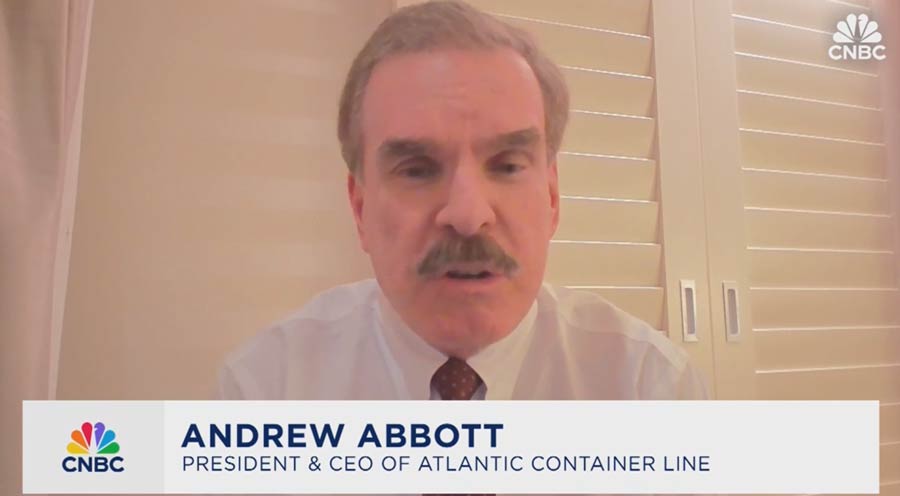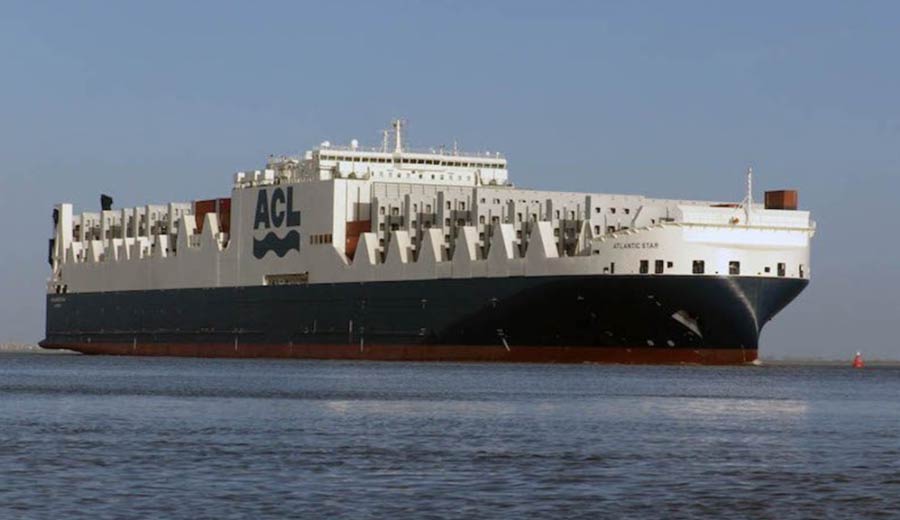

If it charges Chinese ships, ACL could withdraw from the US market
"Freight rates will go back to where they were during the pandemic, and as a small carrier, there is no economics in operating in the U.S. we will have to exit the U.S. market." Andrew Abbott, CEO of Atlantic Container Line (ACL).
The proposed measures include charges of up to $1 million per vessel per entry into a U.S. port by Chinese shipping companies, or $1,000 per vessel per net ton per entry, depending on the vessel's deadweight; For Chinese-made vessels owned by non-Chinese shipping companies, the maximum charge per vessel is $1.5 million, or $500,000 to $1 million per vessel, depending on the proportion of Chinese-made vessels in the fleet; For shipping companies that order ships from China or receive ships ordered from China in the next two years, each ship will be charged between $500,000 and $1 million, depending on the proportion of ships ordered.
At a hearing at the end of March, U.S. importers and exporters, U.S. related associations, and U.S. ports and shipping companies all expressed opposition to these measures. In April, USTR will determine whether a fee will be imposed and the details of the fee. Mr Abbott said US importers and exporters would be the first to be hit by the proposed fee.
All of ACL's vessels were built in China in 2015-2016. Andrew Abbott explained that the company chose to build in China because of a lack of capacity in American shipyards: "The American shipyards said they would have to wait seven years to build a ship because the shipyards were full of orders from the military."
Mr Abbott admitted that if the US implemented the proposed measures, it would deal a "fatal blow" to the ACL. Because compared with large liner companies, small and medium-sized shipping companies are more difficult to absorb the additional costs due to the disadvantages of scale.
"We may be forced to charge our customers a surcharge of $2,000 to $2,500 per FEU, compared to $800 per FEU for larger companies, which is enough to force us out of the US market and will directly affect the jobs of about 300 of our employees and indirectly affect more people in our supply chain." Andrew Abbott said.
He also warned that fees would have more knock-on effects. Smaller ports would lose business, larger ones would become congested and cause container shortages that would drive up freight rates to levels last seen during the pandemic, making U.S. exporters uncompetitive and eventually out of business en masseum. The option of transshipment through Canadian or Mexican ports is not economically viable due to the high cost of inland transportation.

The proposed measures include charges of up to $1 million per vessel per entry into a U.S. port by Chinese shipping companies, or $1,000 per vessel per net ton per entry, depending on the vessel's deadweight; For Chinese-made vessels owned by non-Chinese shipping companies, the maximum charge per vessel is $1.5 million, or $500,000 to $1 million per vessel, depending on the proportion of Chinese-made vessels in the fleet; For shipping companies that order ships from China or receive ships ordered from China in the next two years, each ship will be charged between $500,000 and $1 million, depending on the proportion of ships ordered.
At a hearing at the end of March, U.S. importers and exporters, U.S. related associations, and U.S. ports and shipping companies all expressed opposition to these measures. In April, USTR will determine whether a fee will be imposed and the details of the fee. Mr Abbott said US importers and exporters would be the first to be hit by the proposed fee.

All of ACL's vessels were built in China in 2015-2016. Andrew Abbott explained that the company chose to build in China because of a lack of capacity in American shipyards: "The American shipyards said they would have to wait seven years to build a ship because the shipyards were full of orders from the military."
Mr Abbott admitted that if the US implemented the proposed measures, it would deal a "fatal blow" to the ACL. Because compared with large liner companies, small and medium-sized shipping companies are more difficult to absorb the additional costs due to the disadvantages of scale.
"We may be forced to charge our customers a surcharge of $2,000 to $2,500 per FEU, compared to $800 per FEU for larger companies, which is enough to force us out of the US market and will directly affect the jobs of about 300 of our employees and indirectly affect more people in our supply chain." Andrew Abbott said.
He also warned that fees would have more knock-on effects. Smaller ports would lose business, larger ones would become congested and cause container shortages that would drive up freight rates to levels last seen during the pandemic, making U.S. exporters uncompetitive and eventually out of business en masseum. The option of transshipment through Canadian or Mexican ports is not economically viable due to the high cost of inland transportation.





